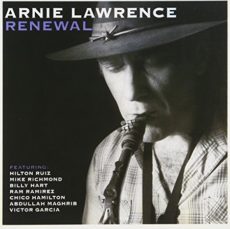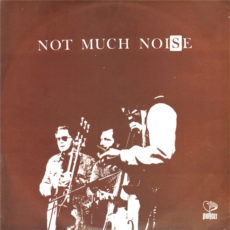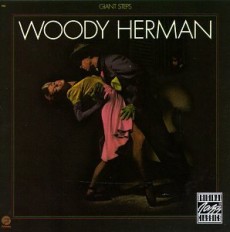
Daily Dose Of Jazz…
Arnie Lawrence ,was born Arnold Lawrence Finkelstein on July 10, 1938 in Brooklyn, New York. He studied clarinet in his youth before switching to saxophone and from the age of 12 he was playing in clubs in the Catskills, and by age 17 was performing at Birdland, at one point working a double bill with John Coltrane.
He played with Charles Mingus, Thad Jones, Maynard Ferguson, Clark Terry and Duke Pearson but did not make his first recordings until 1966, playing on Chico Hamilton’s The Dealer. Working for several years with Hamilton and becoming a soloist on The Tonight Show from 1967 to 1972, Arnie made his first records as a leader in 1968.
In the early 1970s Lawrence played with Willie Bobo, then joined Blood, Sweat & Tears in 1974. He did a world tour with Liza Minnelli in 1978–79, and released a few more records under his own name before touring with Louie Bellson and Elvin Jones in the early 1980s. He composed a symphony he titled Red, White and Blues, which was premiered by an orchestra in Williamsburg, Virginia. It featured himself, Dizzy Gillespie and Julius Hemphill all soloing in the performance.
Putting on his educator hat he taught from the middle of the 1970s, working as an artist in residence in Kentucky and Kansas. By 1986 he had stopped recording and touring and founded the New School for Jazz and Contemporary Music in New York City. Among the program’s students were Roy Hargrove, Brad Mehldau, Larry Goldings, John Popper, Peter Bernstein and Spike Wilner of Smalls Jazz Club. Moving to Israel in 1997, where he founded the International Center for Creative Music, an education facility open to both Jewish and Arab students. He played regularly in Israel and owned his own nightclub called Arnie’s Jazz Underground.
Suffered from lung and liver cancer late in life, alto saxophonist Arnie Lawrence passed away on April 22, 2005, in Jerusalem, Israel and Palestine, as both claim the city as their capital.
Sponsored By

Voices From The Community
![]()
#preserving genius
More Posts: saxophone

Daily Dose Of Jazz…
Mike Zwerin was born May 18, 1930 in New York on May 18, 1930. He studied at the High School of Music and Art and began leading bands in his teens, employing several up-and-coming musicians. At the age of 18, while on summer break from the University of Miami, he was the trombonist in Miles Davis’s nonet at the Royal Roost club in New York. This band was recorded performing the live sessions in 1948 and its music the following year culminated in the album that became immortalized as Birth of the Cool.
He abandoned his musical life for much of the 1950s but after a spell in France he returned to New York in 1958 and played the trombone in several big bands. However, in 1960 after his father’s death, he returned to the world of business and he took over as president of his dad’s company, the Capitol Steel Corporation. Over the next four years Mike kept a hand in jazz, working in John Lewis’s big band Orchestra USA, with whom he recorded and directed a small group. He also worked briefly with pianist Earl Hines but by the mid-1960s he withdrew from the business.
Zwerin moved to London in 1969 and then, in 1972, to Paris, which would be his home for the rest of his life. Nevertheless, he kept his hand in as a trombonist throughout the 1980s, working with his fellow expatriate Hal Singer and with the guitarist Christian Escoudé. In 1988 he toured with the Big Band Charles Mingus, played briefly with t Swiss bandleader George Gruntz and played with the French fusion band Telephone.
As a music critic and columnist he wrote for the Village Voice, Down Beat, Rolling Stone, Penthouse, the International Herald Tribune and Bloomberg News. He authored several books about his own life in the world of jazz, most notably The Silent Sound of Needles, about his struggles with drug addiction, Close Enough for Jazz and The Parisian Jazz Chronicles: An Improvisational Memoir, but his most ambitious book may be La Tristesse de Saint Louis: Swing Under the Nazis that included the story of the Kille Dillers and the Ghetto Swingers, two bands that played in concentration camps, and how jazz survived across Europe though banned by the Nazis and labeled degenerate music.
Throughout his career trombonist and bass trumpeter Mike Zwerin would perform and record with Miles Davis, Maynard Ferguson, John Lewis, Archie Shepp, Claude Thornhill and Bill Russo, arrange, direct and produce an album of Kurt Weill songs with the Sextet of Orchestra U.S.A., before passing away after a long illness on April 2, 2010 in Paris, France at the age of 79.
Sponsored By
#preserving genius

Daily Dose Of Jazz…
Woody Herman was born Woodrow Charles Thomas Herman on May 16, 1913 in Milwaukee, Wisconsin. His father had a deep love for show business and this influenced him at an early age. As a child he worked as a Vaudeville singer and tap-dancer, then started to play the clarinet and saxophone by age 12.
1936 saw him joining the Tom Gerun band and his first recorded vocals were Lonesome Me and My Heart’s at Ease. He also performed with the Harry Sosnick Orchestra, Gus Arnheim and Isham Jones, the latter writing numerous popular songes including It Had To Be You. When Jones retired Woody acquired the orchestra, which became known for its orchestrations of the blues. They first recorded for the Decca label as a cover band, eventually getting their first hit with Woodchopper’s Ball in 1939.He went on to have hits with The Golden Wedding and Blue Prelude.
As bebop was gradually replacing swing Herman commissioned Dizzy Gillespie as an arranger and he provided him three arrangements of Woody‘n You, Swing Shift and Down Under in 1942, heralding a change in the music. By 1945 Herman was with Columbia Records, recording the First Herd, the very successful Laura, the theme song to the 1944 movie of the same name. That group became famous for its progressive jazz that was heavily influenced by Duke Ellington and Count Basie. By the end of 1946 the big band era was over and he disbanded his only financially profitable group.
In 1947, Herman organized the Second Herd that remained together until 1987. This band was also known as The Four Brothers Band derived from the song and featured three tenor and one baritone saxophone of Zoot Sims, Serge Chaloff, Herbie Steward and Stan Getz. In the band was also Al Cohn, Gene Ammons, Lou Levy, Oscar Pettiford, Terry Gibbs and Shelly Manne and they had hits with Early Autumn and The Goof and I.
Herman would go on to perform in movies with Billie Holiday and Louis Armstrong, record for RCA, Capitol, MGM and Verve record labels, put together his Third Herd and variations of the New Thundering Herd and by the Seventies was touring and working more in jazz education by offering workshops and taking on younger sidemen.
The 1980s saw Herman’s return to straight-ahead jazz, dropping some of the newer rock and fusion approaches he had used the previous decade. He continued to perform with his health in decline, chiefly to pay back taxes that were owed because of his business manager’s bookkeeping in the 1960s. Herman owed the IRS millions of dollars and was in danger of eviction from his home. He eventually passed leadership duties to reed section leader Frank Tiberi.
Clarinetist, alto and soprano saxophonist, singer and big band leader Woody Herman was awarded two Grammys for Best Big Band Jazz Album for Encore and Giant Steps, The Grammy Lifetime Achievement Award, had won Down Beat, Esquire and Metronome polls. He was the feature of a documentary film titled Woody Herman: Blue Flame- Portrait of a Jazz Legend, and was a featured half-time performer at Super Bowl VII. He passed away on October 29, 1987.
![]()

Daily Dose Of Jazz…
Palle Mikkelborg was born on March 6, 1941 in Copenhagen, Denmark. Self-taught on trumpet in his youth, he started playing professionally in 1960 and in 1963 joined the Danish Radio Jazz Group, leading it from 1967-1972.
Performing at the Newport Jazz Festival with a quintet helped solidify Palle as a dominant figure on the Danish and international progressive jazz scenes. He has recorded as a leader for Debut, Metronome, Sonet, Storyville, and ECM.
Releasing several solo records, Mikkelborg has also recorded with various co-founded groups, as well as performing sideman duties or arranger on numerous international records.
His most notable international collaborations include the Gil Evans Big Band, the George Russell Big Band, George Gruntz’s Concert Jazz Band, Abdullah Ibrahim, Dexter Gordon, Karin Krog, Gary Peacock, Niels-Henning Orsted Pedersen, Terje Rypdal, Thomas Clausen, Jan Garbarek and many others. With Miles Davis, he composed a suite and produced the 1989 album release Aura.
In 2001 he was awarded the Nordic Council Music Prize. Avant-garde and post-bop trumpeter, composer, arranger and producer Palle Mikkelborg has continued to perform, record and tour.
More Posts: trumpet

Daily Dose Of Jazz…
Bill Ware III was born William Anthony Ware III on January 28, 1959 in East Orange, New Jersey. He played bass and piano early in his career at Harlem’s Jazzmobile, prior to choosing vibraphone as his main instrument. After spending several years playing Latin jazz he formed his own Latin Jazz group, AM Sleep.
In 1987 Ware joined saxophonist Roy Nathanson and trombonist Curtis Fowlkes’ Jazz Passengers as a regular memberand by 1990 had put together a group of sidemen as the Club Bird All-Stars, who accompanied him on a tour of Japan. Stretching out to other genres he played with Groove Collective and Steely Dan during the first half Nineties.
Later in the decade Bill teamed up with fellow former Jazz Passengers, Brad Jones and E. J. Rodriguez forming the ensemble Vibes. His 2001 tribute to Duke Ellington was recorded with guitarist Marc Ribot, and Deborah Harry on his 2002 effort Four.
During the mid-2000s, he recorded several projects blending jazz with Western Classical music as well as composing five film scores with Nathanson. He recorded fourteen solo projects as a leader for AM Sleep, Knitting Factory, Cathexis, Wollenware, Random Chance and Pony Canyon record labels. Vibraphonist Bill Ware continues to compose, perform and record.
More Posts: bass,piano,vibraphone



